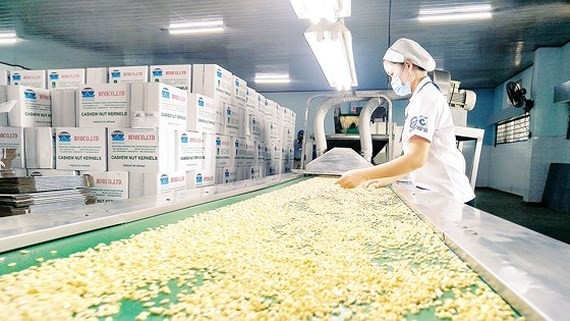Kerala: Private cashew processors stare at huge losses
With around 400 cashew factories in Kollam district remaining closed due to a variety of reasons including high operational costs leading to accumulating losses, small scale private cashew processors are at the receiving end. Many cashew processors are now facing revenue recovery procedures from the banks due to default in mortgage payments. Recently, a cashew processor who incurred a huge loss from his factory was on the verge of suicide and was saved at the nick of time.
A cashew processing unit owner hailing from Chandanathoppe in Kollam attempted suicide as he face revenue recovery threats for his debt to the tune of Rs 7.5 crore from the Karnataka Bank. Five factories under his company Alfana cashews remain shut for more than a year now, which was a source of livelihood to some 800 employees. Another processor from Randam Kutty in Kollam having a default of Rs 4.5 crore has been served with revenue recovery notice asking to repay the money within a month’s time from the Corporation Bank.
“Several cashew factories are on the verge of revenue recovery proceedings owing to the financial crisis they are in. The industry is not at all profitable in Kerala when compared to neighbouring states. For processing a bag of 80 kg cashew here, it will cost nearly `2,000 more than other states like Tamil Nadu, Karnataka, and Andhra Pradesh. The government should immediately intervene by announcing financial packages modelled on other industries,” said I. Nisamudeen, secretary of federation of cashew processors and exporters.
The private owners are also denied sufficient time to repay dues as the debt is listed as a non-performing asset (NPA) soon after the completion of 90 days of non-payment. At present, the banks charge an interest rate of 9%-12% from the processors which could be included as a financial package with the intervention of the government. Proper repayment schedule in long term and availability of new working capital from banks could save the sinking industry.
With around 400 cashew factories in Kollam district remaining closed due to a variety of reasons including high operational costs leading to accumulating losses, small scale private cashew processors are at the receiving end. Many cashew processors are now facing revenue recovery procedures from the banks due to default in mortgage payments. Recently, a cashew processor who incurred a huge loss from his factory was on the verge of suicide and was saved at the nick of time.
A cashew processing unit owner hailing from Chandanathoppe in Kollam attempted suicide as he face revenue recovery threats for his debt to the tune of Rs 7.5 crore from the Karnataka Bank. Five factories under his company Alfana cashews remain shut for more than a year now, which was a source of livelihood to some 800 employees. Another processor from Randam Kutty in Kollam having a default of Rs 4.5 crore has been served with revenue recovery notice asking to repay the money within a month’s time from the Corporation Bank.
“Several cashew factories are on the verge of revenue recovery proceedings owing to the financial crisis they are in. The industry is not at all profitable in Kerala when compared to neighbouring states. For processing a bag of 80 kg cashew here, it will cost nearly `2,000 more than other states like Tamil Nadu, Karnataka, and Andhra Pradesh. The government should immediately intervene by announcing financial packages modelled on other industries,” said I. Nisamudeen, secretary of federation of cashew processors and exporters.
The private owners are also denied sufficient time to repay dues as the debt is listed as a non-performing asset (NPA) soon after the completion of 90 days of non-payment. At present, the banks charge an interest rate of 9%-12% from the processors which could be included as a financial package with the intervention of the government. Proper repayment schedule in long term and availability of new working capital from banks could save the sinking industry.

